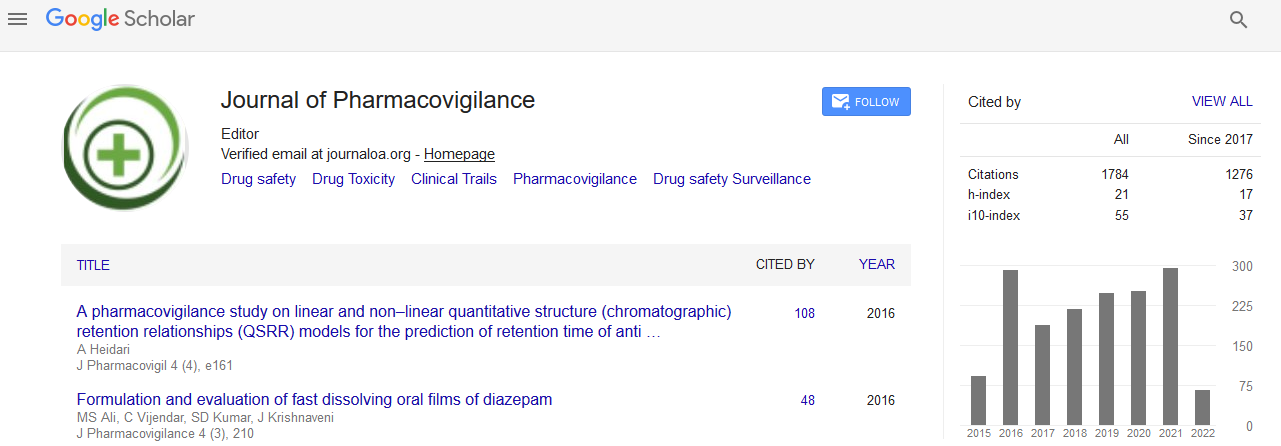Indexed In
- Open J Gate
- JournalTOCs
- The Global Impact Factor (GIF)
- RefSeek
- Hamdard University
- EBSCO A-Z
- OCLC- WorldCat
- Publons
- Euro Pub
- Google Scholar
Useful Links
Share This Page
Journal Flyer

Open Access Journals
- Agri and Aquaculture
- Biochemistry
- Bioinformatics & Systems Biology
- Business & Management
- Chemistry
- Clinical Sciences
- Engineering
- Food & Nutrition
- General Science
- Genetics & Molecular Biology
- Immunology & Microbiology
- Medical Sciences
- Neuroscience & Psychology
- Nursing & Health Care
- Pharmaceutical Sciences
Combining quantitative and qualitative methods in signal detection and evaluation in pharmacovigilance
4th International Conference and Exhibition on Pharmacovigilance & Clinical Trials
August 10-12, 2015 London, UK
Michelle Perry
Scientific Tracks Abstracts: J Pharmacovigilance
Abstract:
Adverse drug reactions (ADRs) for medicinal products can be identified through post-marketing studies by methods of signal detection. Traditional, qualitative methods for signal detection involve clinical review of cases. Modern, quantitative methods help surveillance of the large number of medicinal products on the market. This research aimed to investigate combining traditional and modern methods of signal detection by adding statistical weighting to adverse event terms identified pre-marketing as requiring further monitoring post-marketing to improve identification and evaluation of ADRs. The therapeutic area diabetes mellitus and anti-diabetic drugs currently marketed was chosen to model the concept. Review of pre-marketing information for safety concerns highlighted two medical concepts: Cardiac failure and acute pancreatitis. Weightings were established, based on ratings provided by eleven physicians through a Delphi study to identify and prioritise terms to add statistical weight to. Weightings were applied to two datasets, both from the Yellow Card Scheme in the UK: a two-year dataset (2005-2007) and a ten-year dataset (2000-2010). In the two-year dataset oedema peripheral became a potential signal one month earlier for pioglitazone and two months earlier for rosiglitazone. In the ten-year dataset, oedema peripheral was reported 22 times with pioglitazone but was not considered a signal in the original data. With the weighting applied it became a potential signal for further review. No true signals were missed using this weighting method. Oedema peripheral is now listed warning and precaution for glitazones. Incorporating traditional, qualitative review of pre-marketing information with quantitative, signal detection methodology may improve pharmacovigilance.
Biography :
Michelle Perry has completed her MPhil from the University of Portsmouth in collaboration with the Drug Safety Research Unit, Southampton. She also has a BSc (Hons) in Applied Pharmacology from Queen Margaret University, Edinburgh and is currently a Pharmacovigilance Associate at Aspen Pharmacare Trading Limited, based in Dublin, Ireland.


